Healthy Eating Basics

Foods that are healthy for you may not be appropriate for someone else.
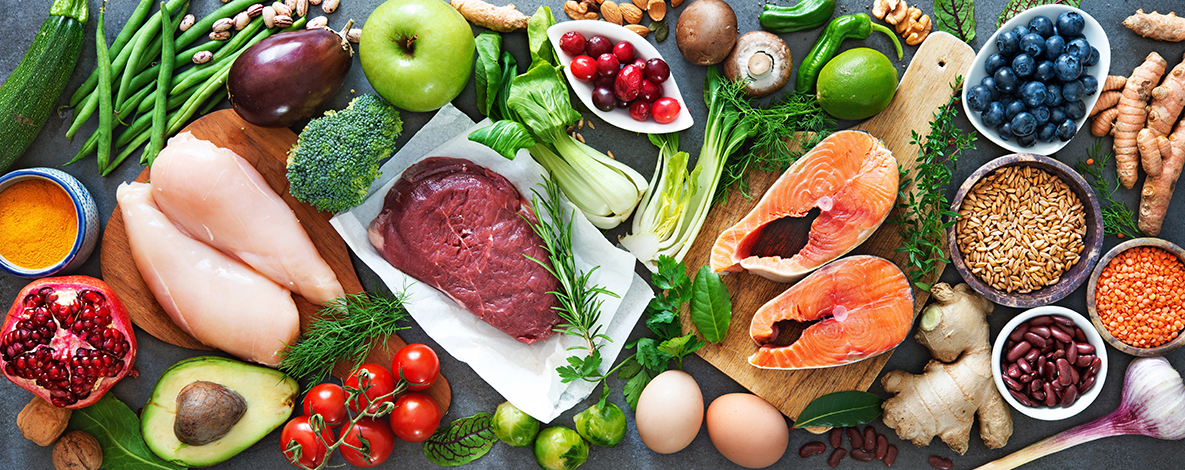
Healthy eating means something different to each of us. A pre-existing medical condition, your personal belief system, and your lifestyle could influence your definition of healthy eating.
Let’s examine the basic building blocks of a healthy diet so you can create a plan that works best for your physical condition and lifestyle.

What is a calorie?
A calorie is a unit of energy.
The number of calories in a food describes how much energy your body can get from eating or drinking that item. Getting enough calories each day is very important to fuel our bodies and to help them function at their best, but eating too many calories can lead to weight gain.
Your body needs calories for energy and everyone requires a different amount of calories per day based on:
- Age
- Weight
- Height
- Gender
- Activity Level
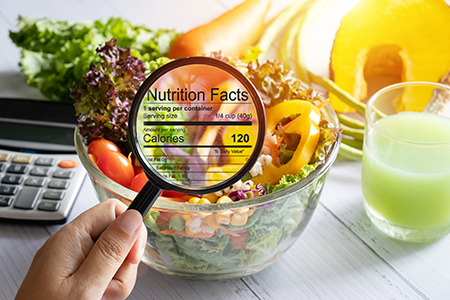
Sugar
According to the American Heart Association, men should limit their added sugar intake to 9 teaspoons or 36 grams per day and women should have no more than 6 teaspoons or 25 grams per day. Too much sugar may negatively impact your health in the forms of weight gain, increased risk of heart disease and difficulties managing your blood sugar.

Sodium
Consuming too much sodium can increase risk for developing medical conditions such as high blood pressure, heart disease, and stroke. The American Heart Association recommends no more than 2,300 milligrams of sodium per day. Be sure to read food labels to identify how much sodium is in what you eat!

Protein
Protein is essential for energy, healthy muscle, skin and bones. Your body uses protein to repair and build tissues. Protein can come from both animal and plant sources.
Animal Sources
- Red Meat
- Poultry
- Eggs
- Fish & Shellfish
- Dairy Products
Plant Sources
- Tofu & Tempeh
- Edamame
- Chickpeas
- Lentils
- Nuts
- Quinoa
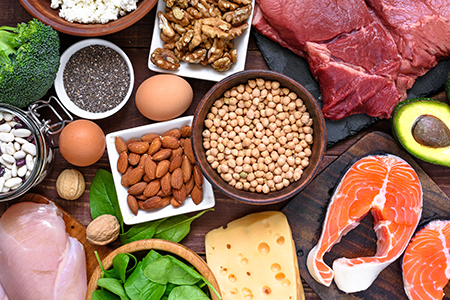
Fat
Fat is another source of energy for the body. It is necessary to help with proper growth and development and helps the body to absorb fat-soluble vitamins. The two main types of fat are saturated and unsaturated fat.
Excess intake of saturated fats can raise cholesterol levels and increase risk of cardiovascular disease. The Dietary Guidelines for Americans recommends consuming no more than 10% of calories per day from saturated fats.
Saturated Fats
- Animal Products
- Full-Fat Dairy Products
- Desserts
- Processed Snack Food
Unsaturated Fats
- Avocados
- Fish
- Nuts & Seeds
- Olives
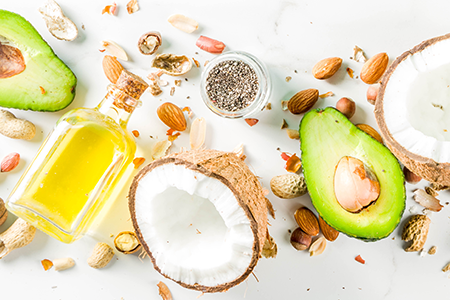
Carbohydrates
Carbohydrates are our body’s main source of energy. The three types of carbohydrates are sugar, starch, and fiber. Choose your carbohydrate foods wisely by focusing on nutrient dense foods containing dietary fiber, vitamins, and minerals. Avoid excess added sugar, which provides calories and energy, but little to no other nutritional value.
Nutrient-Dense Carbs
- Brown Rice
- Beans
- Wheat
- Fruits/Vegetables
- Dairy Products
Processed Carbs
- Cookies
- Cakes
- Candy
- Sugary Beverages
- Processed Snack Foods
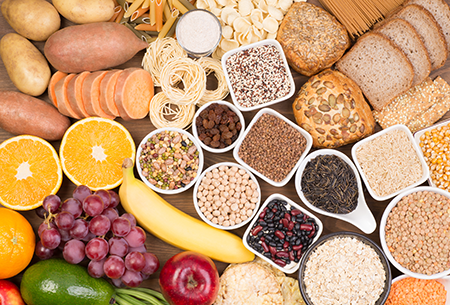
Download the Free Resource
Access a printer-friendly version of the resource to reference later.